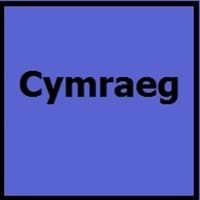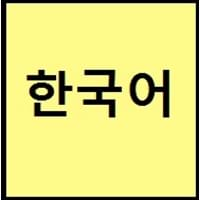Welsh vs Korean
Countries
Wales
China, Jilin Province, North Korea, South Korea, Yanbian
National Language
Wales
North Korea, South Korea
Second Language
Not spoken in any of the countries
Not spoken in any of the countries
Speaking Continents
Europe
Asia
Minority Language
Argentina, United Kingdom
Japan, People's Republic of China, Russia, United States of America
Regulated By
Welsh Language Commissioner
The National Institute of the Korean Language
Interesting Facts
- One of the Celtic language still spoken with great numbers of speakers is Welsh language.
- Welsh was evolved from British , which was spoken by ancient Britons.
- Korean has borrowed words from English and Chinese.
- Korean has two counting systems. First, is based on Chinese characters and numbers are similar to Chinese numbers, and second counting system is from words unique to Korea.
Similar To
English Language
Chinese and Japanese languages
Derived From
British Language
Not Available
Alphabets in
Welsh-Alphabets.jpg#200
Korean-Alphabets.jpg#200
Writing Direction
Not Available
Left-To-Right, Horizontal, Top-To-Bottom
Hello
Helô
안녕하세요. (annyeonghaseyo.)
Thank You
Diolch
감사합니다 (gamsahabnida)
How Are You?
Sut ydych chi?
어떻게 지내세요? (eotteohge jinaeseyo?)
Good Night
Nos da
안녕히 주무세요 (annyeonghi jumuseyo)
Good Evening
Noswaith dda
안녕하세요 (annyeonghaseyo.)
Good Afternoon
P'nawn da
안녕하십니까 (annyeong hashimnikka)
Good Morning
Bore da
안녕히 주무셨어요 (An-yŏng-hi ju-mu-shŏ-ssŏ-yo)
Please
os gwelwch yn dda
하십시오 (hasibsio)
Sorry
Mae'n ddrwg gennym
죄송합니다 (joesonghabnida)
I Love You
Dw i'n dy garu di
당신을 사랑합니다 (dangsin-eul salanghabnida)
Excuse Me
Esgusodwch fi
실례합니다 (sillyehabnida)
Dialect 1
Patagonian Welsh
Jeju
Where They Speak
Argentina
South Korea
Dialect 2
Y Wyndodeg
Gyeongsang
Where They Speak
Gwynedd
South Korea
How Many People Speak
Not Available
Dialect 3
Y Bowyseg
Hamgyŏng
Where They Speak
Powys
China, North Korea
Speaking Population
Not Available
Native Name
Cymraeg / Y Gymraeg
한국어 (조선말)
Alternative Names
Cymraeg
Hanguk Mal, Hanguk Uh
French Name
gallois
coréen
German Name
Kymrisch
Koreanisch
Pronunciation
[kəmˈrɑːɨɡ]
Not Available
Ethnicity
Welsh people
Koreans
Origin
9th Century
Before 1st century
Language Family
Indo-European Family
Koreanic Family
Subgroup
Celtic
Not Available
Branch
Brythonic
Not Available
Early Forms
Common Brittonic, Old Welsh, Middle Welsh
Old Korean, Middle Korean and Korean
Standard Forms
Welsh
Pluricentric Standard Korean, South Korean standard and North Korean standard
Language Position
Not Available
Signed Forms
Not Available
Korean Sign Language
Scope
Individual
Individual
ISO 639 6
Not Available
Not Available
Glottocode
wels1247
kore1280
Linguasphere
50-ABA
45-AAA
Language Type
Historical
Living
Language Linguistic Typology
Verb-Subject-Object
Subject-Object-Verb
Language Morphological Typology
Fusional
Agglutinative
Welsh and Korean Language History
Comparison of Welsh vs Korean language history gives us differences between origin of Welsh and Korean language. History of Welsh language states that this language originated in 9th Century whereas history of Korean language states that this language originated in Before 1st century. Family of the language also forms a part of history of that language. More on language families of these languages can be found out on Welsh and Korean Language History.
Welsh and Korean Greetings
People around the world use different languages to interact with each other. Even if we cannot communicate fluently in any language, it will always be beneficial to know about some of the common greetings or phrases from that language. This is where Welsh and Korean greetings helps you to understand basic phrases in Welsh and Korean language. Welsh word for "Hello" is Helô or Korean word for "Thank You" is 감사합니다 (gamsahabnida). Find more of such common Welsh Greetings and Korean Greetings. These greetings will help you to be more confident when conversing with natives that speak these languages.
Welsh vs Korean Difficulty
The Welsh vs Korean difficulty level basically depends on the number of Welsh Alphabets and Korean Alphabets. Also the number of vowels and consonants in the language plays an important role in deciding the difficulty level of that language. The important points to be considered when we compare Welsh and Korean are the origin, speaking countries, language family, different greetings, speaking population of these languages. Want to know in Welsh and Korean, which language is harder to learn? Time required to learn Welsh is 30 weeks while to learn Korean time required is 88 weeks.





